Animals
- Animals
In a first, orcas and dolphins seen possibly hunting together
New footage shows orcas and dolphins coordinating hunts, hinting at interspecies teamwork to track and catch salmon off British Columbia.
-
 Animals
AnimalsScience taught us a few new tricks about our pets in 2025
Are we reading our dog’s moods right? Does TV really comfort them when we’re away? These pet stories were catnip to us this year.
By Carly Kay -
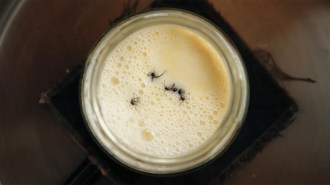 Humans
HumansHave a taste of our favorite food stories from 2025
This year, researchers took a bite out of culinary innovation. Check out some of our favorite food-related stories from 2025.
By Carly Kay -
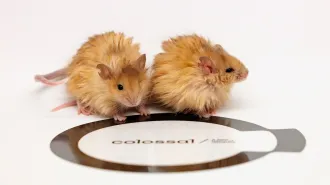 Animals
AnimalsThese are our favorite animal stories of 2025
From clever cockatoos to vomiting spiders, these cool critters captivated us this year.
By Carly Kay -
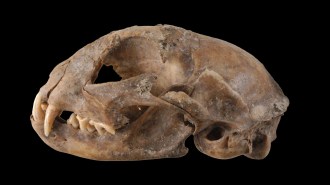 Animals
AnimalsAncient DNA rewrites the tale of when and how cats left Africa
Cats were domesticated in North Africa, but spread to Europe only about 2,000 years ago. Earlier reports of “house” cats were wild cats.
By Jake Buehler -
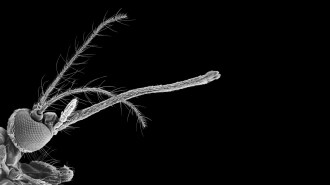 Tech
TechMosquitoes use it to suck blood. Researchers used it to 3-D print
A mosquito proboscis repurposed as a 3-D printing nozzle can print filaments around 20 micrometers wide, half the width of a fine human hair.
By Payal Dhar -
 Animals
AnimalsBats might be the next bird flu wild card
Finding that vampire bats along Peru’s coast carried H5N1 antibodies raises concerns that multiple bat species could become reservoirs for the virus.
By Jane Qiu -
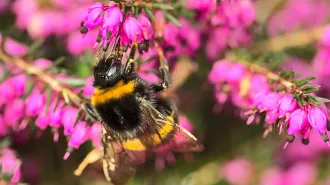 Animals
AnimalsTrucked-in honeybees may edge out bigger bumblebee foragers
The finding could guide beekeepers to keep hives out of most vulnerable areas of the Irish heathlands.
-
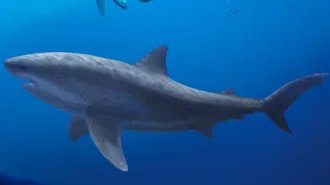 Animals
AnimalsHuge relatives of white sharks lived earlier than thought
Lamniform sharks such as great whites and tiger sharks are famous for their size. The first such giants evolved 15 million years earlier than thought.
By Jake Buehler -
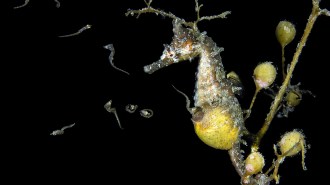 Animals
AnimalsHow male seahorses tap into their mothering side
By studying the genes responsible for the seahorse’s brood pouch, researchers uncovered a new route to “motherhood.”
-
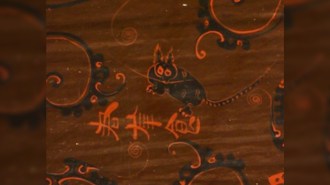 Animals
AnimalsAncient DNA reveals China’s first ‘pet’ cat wasn’t the house cat
The modern house cat reached China in the 7th century. Before that, another cat — the leopard cat — hunted the rodents in ancient Chinese settlements.
-
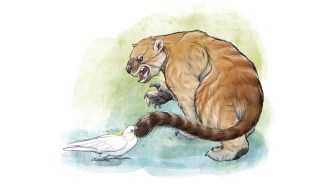 Animals
AnimalsCuddly koalas had a brutal, blade-toothed close cousin
Ancient collagen preserved in the bones of extinct Australian mammals is revealing their evolutionary relationships, leading to some surprises.
By Jake Buehler